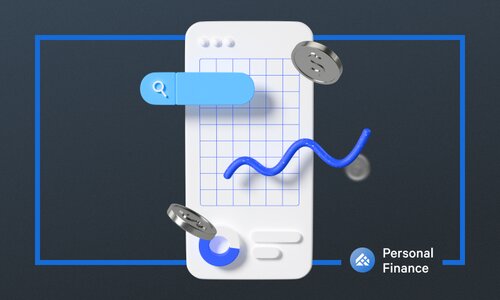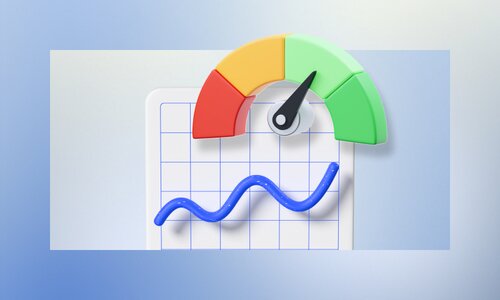Is now the right time to buy a home? Homeownership can be a great way to build your net worth over time (and give you the freedom to DIY anything you can imagine at home). But choosing a mortgage or a landlord isn’t cut and dry. Renting isn’t always better than buying. And buying isn’t always better than renting.
You’ll need to consider your goals, lifestyle, and needs in the next few years. Plus, these pros and cons of renting vs. buying a home.
Owning a Home
Homeownership can offer stability, the potential for long-term wealth building, and the freedom to customize your living space. However, you must be prepared for the financial responsibilities, the maintenance costs, and the lack of flexibility. Here are the pros and cons of long-term homeownership:
Pros of buying:
- Predictable housing payments: By choosing a fixed-rate mortgage, you’ll know the exact principal and interest payments, which helps with financial stability and peace of mind. Fixed monthly mortgage payments can also be beneficial during a recession or a cost of living crisis.
- Home value appreciation: Buying a home can offer the potential for appreciation, particularly in areas with strong job markets. When you buy a house, each mortgage payment helps you build equity.
- Control of your environment: When you own a home, you have more control over your living environment, allowing you to make decisions that align with your family’s needs. Whether providing stability for your children’s education, keeping your beloved pets, or indulging in hobbies like gardening and redecorating, owning a home offers greater flexibility and autonomy than renting.
- Tax advantages: The U.S. government has historically incentivized homeownership through various tax benefits and deductions, such as the mortgage interest deduction. However, these incentives were largely reduced with the 2017 tax reform. While deductions for property taxes were also limited, one remaining tax advantage is the exemption from capital gains tax on home sale profits of up to $250,000 for single taxpayers and $500,000 for married filers.
Cons of buying:
- Substantial upfront costs: A new home purchase requires a substantial down payment, typically ranging from 3% to 20% of the property’s value, and a good credit score. If you have less than 20% in down payment, you may need to pay PMI or private mortgage insurance premiums, which can add to your monthly costs. Buying a home means you’re essentially wagering a significant amount of money on a real estate asset rather than investing in alternative options like stocks and bonds.
- Cost of maintenance: As a homeowner, you are responsible for handling unexpected expenses such as plumbing issues or appliance repairs. Additionally, the overall cost of homeownership is often higher than renting, even if your mortgage payment is lower than rent payments. This is due to additional expenses that homeowners typically incur, including the upkeep of the home, trash pickup, water and sewer service, pest control, tree trimming, homeowner’s insurance, pool cleaning, and lender-required flood or earthquake insurance (in certain areas).
- Property taxes and HOA fees: Annual property taxes, which are determined based on the assessed value of your home, can amount to several thousand dollars in some areas. If you purchase a property within a homeowners association or condo association, you may also be required to pay monthly fees totaling hundreds of dollars.
- Less flexibility: When you own a home, selling it and cashing out your home equity to move elsewhere can take time and effort. Depending on market conditions, selling your home and transitioning to a new location may take longer than expected.
Renting a Home
Renting a home offers flexibility and freedom from many responsibilities associated with homeownership, but it also comes with limitations and potential financial costs. Here are the pros and cons of renting to consider:
Pros of renting:
- More affordable housing costs: Renting a home continues to be a more affordable upfront option than buying in some areas. Mortgage interest rates have doubled over the last year, widening the gap between monthly rents and payments made by first-time homebuyers. Homeownership costs grew 37.4% in December 2022 compared to a 3.2% in rent price increases during the same period. Further, homeownership can be out of reach for many Americans in major U.S. cities such as New York or San Francisco, where the median home price was $1.3 million in April 2023.
- Flexibility: If you have a career that requires frequent relocation or expect to move to a different city soon, renting can provide the flexibility to quickly pick up and do so without incurring significant financial penalties. On the other hand, owning a home can tie you down to a specific location, limiting your job prospects and making it difficult to take advantage of better opportunities elsewhere. Buying and selling a home costs, such as realtor fees, closing costs, home inspections, appraisals, and repairs, can also be substantial.
- No additional costs: One of the biggest benefits of renting is that you’re not responsible for maintenance, repairs, upgrades, or renovations on the rental property. Whether it’s a minor issue, like a leaky faucet, or a major repair, such as replacing the roof, your landlord will handle both the financial and the logical aspects.
Cons of renting:
- Rent increases: The uncertainty of future rent costs is a significant disadvantage of renting. You cannot predict how much your rent will be in the coming years, making it difficult to plan your budget. If housing prices or mortgage rates rise quickly, you may face substantial increases in your rental payments.
- No equity: When you rent a home, your monthly payments essentially contribute to your landlord’s wealth rather than building your assets. Homeownership, however, allows you to build equity in your home. As you make mortgage payments, you gradually pay off the principal amount of your loan, increasing your ownership stake in the property. This equity can be a valuable asset and can be leveraged for future financial opportunities, such as personal loans or refinances.
- Lack of control: Unlike homeowners who have the autonomy to make changes that align with their preferences and lifestyle, as a renter, you’re restricted by the terms of your lease agreement. You need to seek permission for any alternations you wish to make, which can limit your ability to create a living environment that reflects your taste and needs. If you make any changes that damage the property, the costs are deducted from your security deposit.
- Other investment sources: Focusing on building assets outside of real estate becomes crucial if you choose to rent instead of owning a home. As a renter, you won’t have the opportunity to benefit from the potential appreciation of property values over time.
Start Investing in Real Estate (Even if You’re a Renter)
Arrived enables you to invest in a diversified portfolio of residential properties across different markets without the challenges and financial commitment of purchasing and maintaining a single property. Investors can build their own investment portfolio, including both single family residential homes and vacation properties across the U.S.








